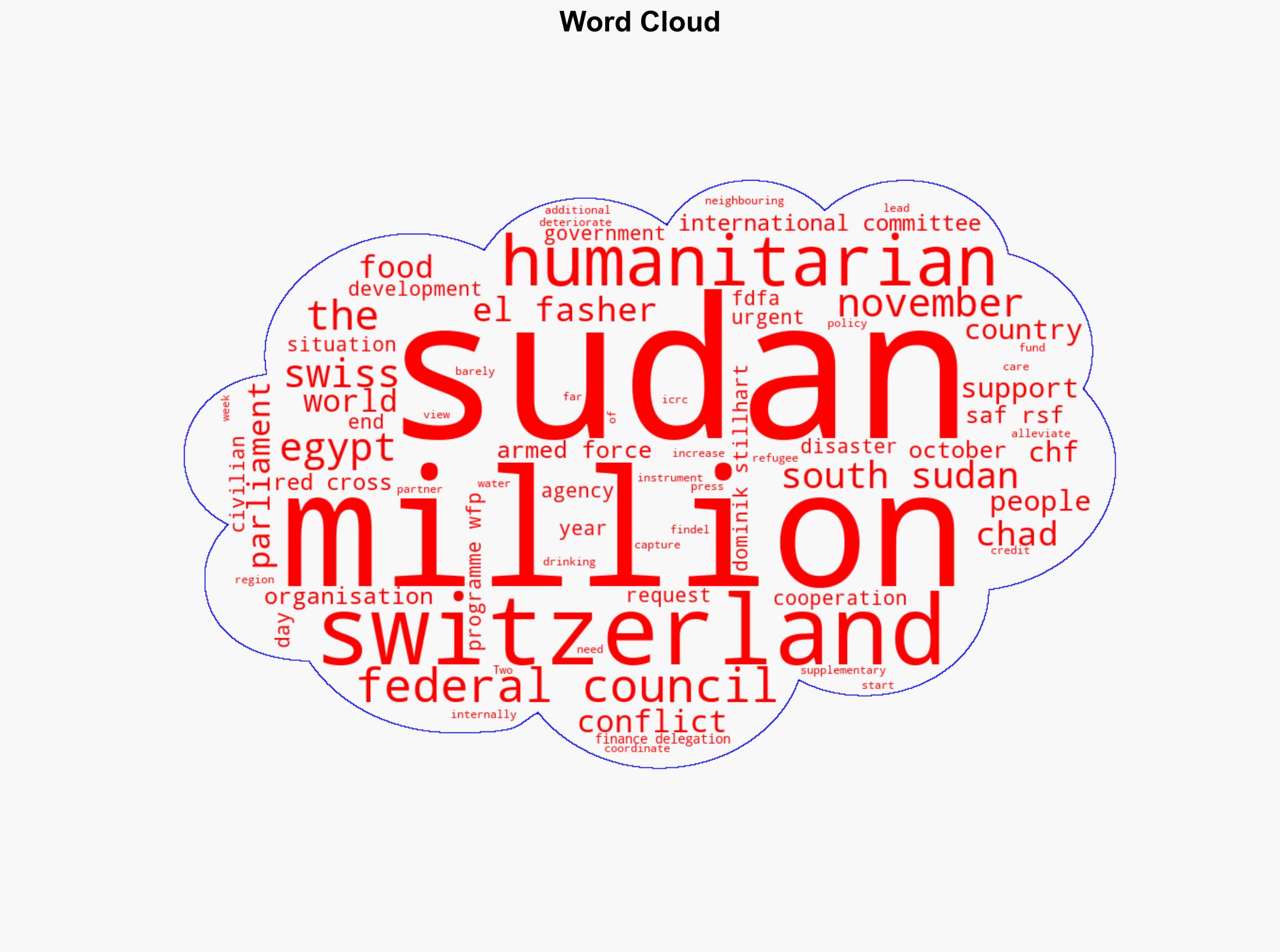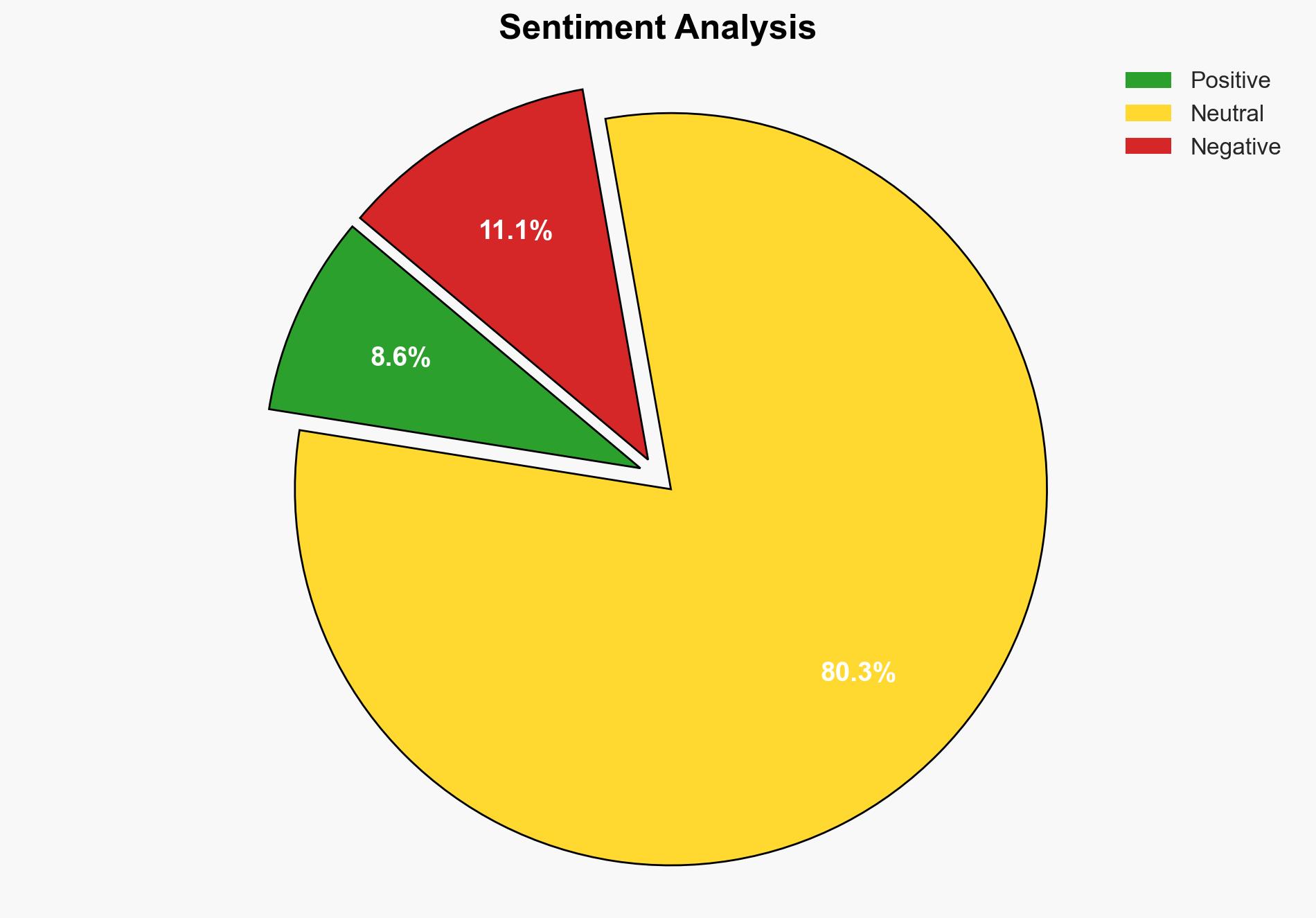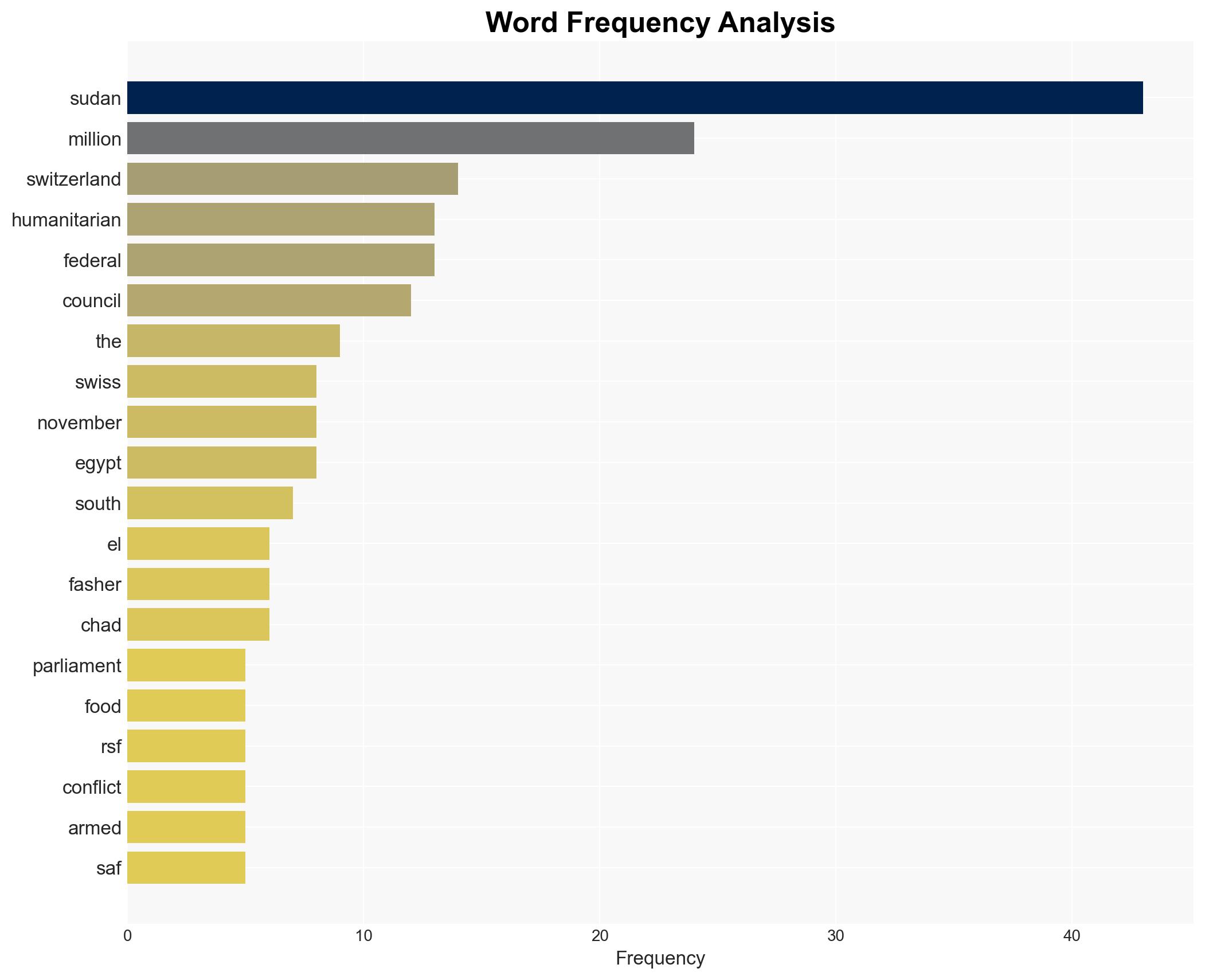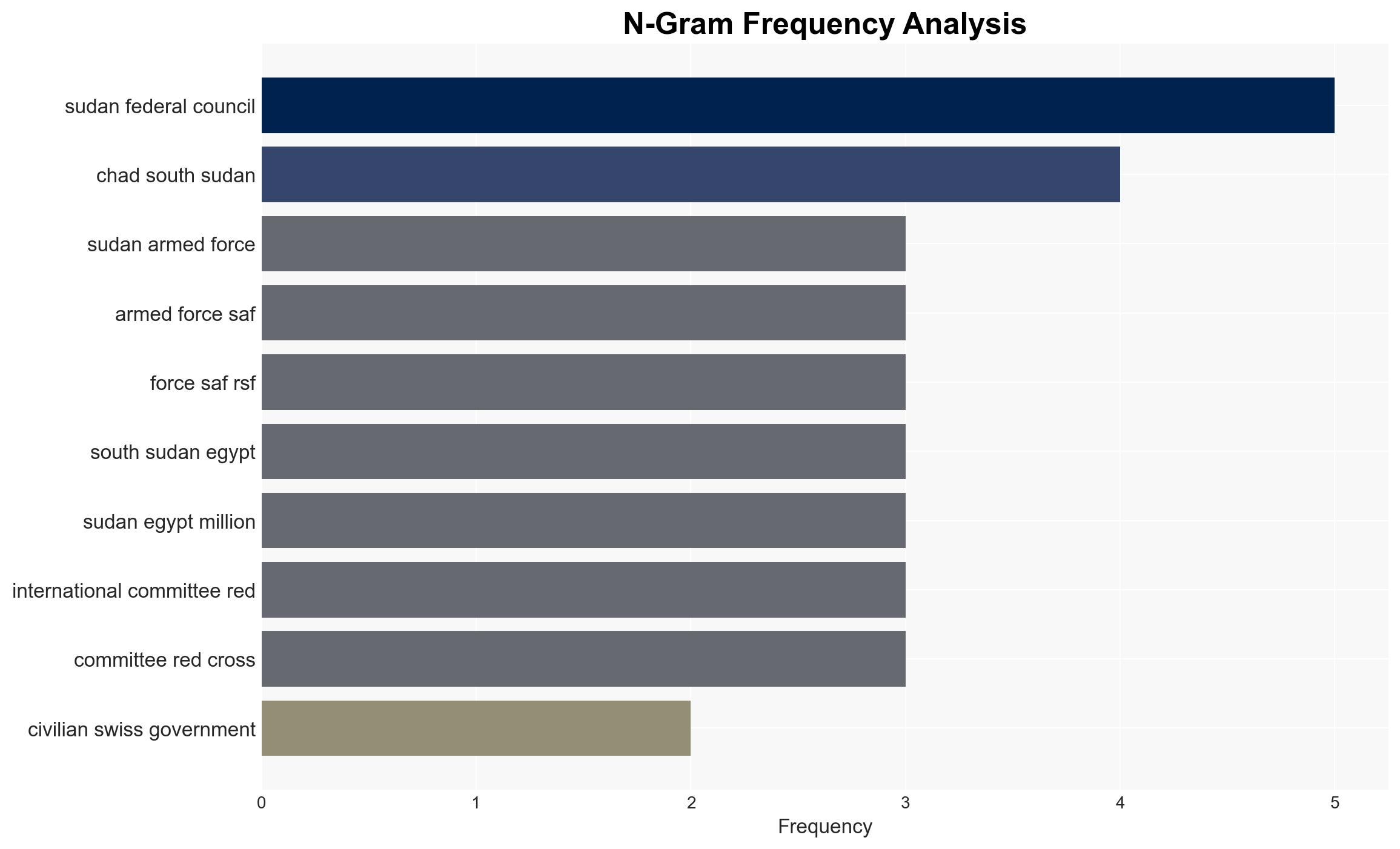Humanitarian crisis in Sudan Federal Council requests emergency aid package for civilians – Globalsecurity.org
Published on: 2025-11-20
AI-powered OSINT brief from verified open sources. Automated NLP signal extraction with human verification. See our Methodology and Why WorldWideWatchers.
Intelligence Report: Humanitarian Crisis in Sudan and Swiss Federal Council’s Emergency Aid Package
1. BLUF (Bottom Line Up Front)
The most supported hypothesis is that the Swiss Federal Council’s emergency aid package is a genuine response to the humanitarian crisis in Sudan, driven by both humanitarian concerns and strategic interests in regional stability. Confidence Level: Moderate. Recommended action: Switzerland should proceed with the aid package while ensuring robust monitoring mechanisms to prevent misappropriation and enhance coordination with international partners.
2. Competing Hypotheses
Hypothesis 1: The Swiss Federal Council’s emergency aid package is primarily motivated by humanitarian concerns, aiming to alleviate the suffering of civilians in Sudan and surrounding regions.
Hypothesis 2: The aid package is strategically motivated, with Switzerland seeking to bolster its influence and diplomatic relations in the region, using humanitarian aid as a soft power tool.
Hypothesis 1 is more likely due to the immediate and severe humanitarian needs outlined in the press release, the involvement of established humanitarian organizations, and Switzerland’s historical commitment to humanitarian aid. However, elements of Hypothesis 2 cannot be entirely dismissed, given the geopolitical significance of the region.
3. Key Assumptions and Red Flags
Assumptions: The Swiss government has the capacity to deliver the aid effectively; the humanitarian situation in Sudan is accurately reported; international partners will cooperate effectively.
Red Flags: Potential misappropriation of funds by local entities; lack of transparency in aid distribution; possible exaggeration of crisis severity to secure international aid.
4. Implications and Strategic Risks
The humanitarian crisis in Sudan poses significant risks of regional instability, including increased migration pressures on neighboring countries like Chad, South Sudan, and Egypt. Economic collapse and healthcare system failures could exacerbate political tensions and lead to further conflict. There is also a risk of aid being diverted to support military factions, which could prolong the conflict.
5. Recommendations and Outlook
- Switzerland should establish a transparent monitoring and evaluation framework for the aid package.
- Enhance coordination with international partners like the ICRC and WFP to ensure effective aid delivery.
- Engage in diplomatic efforts to support conflict resolution in Sudan.
- Best-case scenario: Effective aid delivery stabilizes the humanitarian situation and reduces regional migration pressures.
- Worst-case scenario: Aid is misappropriated, exacerbating the conflict and leading to increased regional instability.
- Most-likely scenario: Aid provides temporary relief, but long-term stability requires sustained international engagement and conflict resolution efforts.
6. Key Individuals and Entities
Dominik Stillhart (Federal Council’s delegate for humanitarian efforts), Swiss Agency for Development and Cooperation, International Committee of the Red Cross, World Food Programme.
7. Thematic Tags
Regional Focus, Regional Focus: Sudan, Switzerland, Humanitarian Aid, Conflict Resolution
Structured Analytic Techniques Applied
- Causal Layered Analysis (CLA): Analyze events across surface happenings, systems, worldviews, and myths.
- Cross-Impact Simulation: Model ripple effects across neighboring states, conflicts, or economic dependencies.
- Scenario Generation: Explore divergent futures under varying assumptions to identify plausible paths.
Explore more:
Regional Focus Briefs ·
Daily Summary ·
Support us





